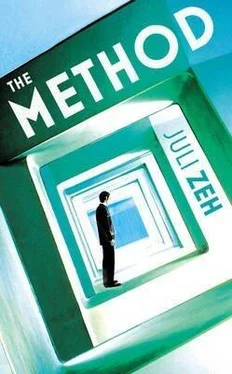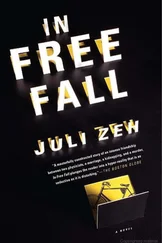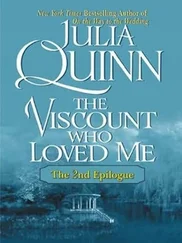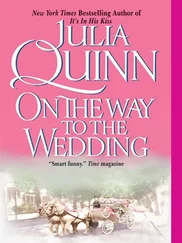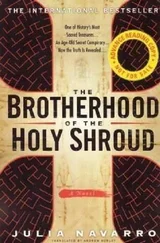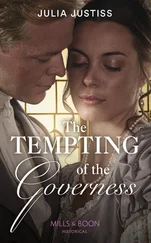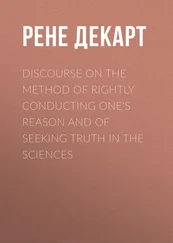Mia replicates his perambulation of her apartment and tries to see her belongings, books and papers through the eyes of a reporter. She too is a nihilist, but in her case, the absence of objective truth leads not, as with Kramer, to an outlook of unconditionality, but to an agonising feeling that nothing is fixed. Mia can find reasons for everything as well as its opposite. She can justify or criticise any given concept or thought; she can argue for and against both sides; in fact, Mia could play chess with or without an opponent and never run out of moves. For a long time now she has believed that a person’s character consists mainly of rhetoric, but, unlike Kramer, she has never been tempted to apply her conclusions in any particular way. Deep down she suspects that she and Kramer are cut from the same cloth: that she reached a certain point and stopped, whereas Kramer simply carried on. As if he thought there was a goal, as if he thought there was something worth wanting. The crucial question as to what Kramer wants, as to what anyone might want , seems to Mia to find its mystical answer in the perfect way of serving a cup of hot water. For the duration of a few seconds, she was enormously attracted to Kramer.
Either side of those few seconds, which is how we get to the ambivalence, Mia felt a mild revulsion. It would be possible to rewrite, or in Mia’s case, mentally reshuffle, the information above. The same starting point could be used to construct a different set of arguments; the black chess pieces could be swapped for the white. Then Kramer, the icon of unconditionality, would be an empty striving with a void at its heart. A snoop. A pathetic creature.
While Mia continues to pace around the room, the ideal inamorata raises herself on her elbows and remonstrates with her. ‘ An answer contained in the perfect way of serving hot water? Attracted to your brother’s killer? Do you call yourself a woman?’
‘Rousseau,’ says Mia from the bookcase. ‘With a dedication from Moritz at the front. Dostoevsky, Orwell, Musil. Kramer. Agamben, also from Moritz. I haven’t read it.’
‘You’re not a woman,’ says the ideal inamorata. ‘A woman knows she’s a woman without checking between her legs.’
‘Only 120 kilometres to go,’ says Mia from the stationary bike. ‘The backlog will be cleared in a couple of days.’
‘Did they take out your brain so your thoughts could go round in circles? Cut from the same cloth … He’s your enemy, Mia! Call yourself human?’
‘Fine,’ says Mia from her desk. ‘I’m not human and I’m not a woman.’ She examines the papers that Kramer inspected earlier. ‘But I’m not a terrorist either.’ She picks up Moritz’s picture and holds it to the light. Behind her, the ideal inamorata blends into the dusk; she keeps perfectly still, as if she weren’t there.
‘I’m just the one who was left behind,’ says Mia softly, while outside the sky darkens with memory.
MIA WAS STILL at her desk when the doorbell rang. Startled, she looked at her watch: a few minutes after midnight. This was no ordinary ringing: more the sound of a breakdown. Shriek, shriek , it screeched, at regular intervals, relentlessly, as if it would never end. Mia hurried to the door. Moritz was on the landing. He was watching his index finger on the doorbell, as it rang and rang. Mia grabbed his hand. Silence at last. We have a few seconds to work out who is standing at the door. The Murder Night, waiting to be let in. Past tense, of course.
‘What’s the matter with you? Don’t just stand there, Moritz!’
Moritz didn’t answer. He took a single step towards her, only to stop in the doorway and stare. He seemed to be seeing the apartment for the first or last time. We can confirm it was the last. Mia took him by the arm and steered him to the sofa.
‘Well? Tell me about it. Tell me about her . What was her name again?’
‘Sibylle.’
‘Did you like her? Was she nice?’
‘She was dead.’
Mia and Moritz looked at each other. For a few moments, it seemed as if the last scrap of meaning had been emptied out of language, as if what Moritz had said to his sister had no possible meaning in her mind. Time passed, the Earth turned a little further on its axis, a few more people died across the globe, and a few more were born. Then Mia gave Moritz a little shove, and he crumpled.
‘What — what do you mean?’ she asked.
‘Crazy, isn’t it?’ he said. ‘If she were alive, there’d be a million things I’d want to tell you, but now … well, there’s practically nothing left to say.’
‘Pull yourself together and tell me what happened!’
‘Fine,’ he said wretchedly, ‘I’ll tell you what happened — but don’t expect me to cry. I couldn’t cry. Not even at the police station. Promise you’ll believe me, even without the tears?’
‘Of course,’ Mia assures him.
‘The girl with the silky eyes. You remember? The one I wanted to go to jail with; freedom paired. She’s still here.’ He clutched his head. ‘She’s in here. There isn’t much else to say.’
He fell silent again. Mia was so upset she had to swallow three times. This was the worst possible time to prove to Moritz that she wasn’t the cold-hearted rationalist he thought. No, Mia would have to be strong — to weather anything, like a rock in the storm.
‘You’d arranged a place to meet …’ she said.
‘Beneath the South Bridge. That’s where I met them all. When a train goes by you can feel the earth shake and you can cling to each other. I was excited and took a detour so as not to arrive too early. At first I assumed she was late or she’d left. But she was lying on the ground. She was naked from the waist down. I took her by the shoulders, lifted her up and laid her back on the ground. She was warm and soft. After a while, I thought to feel her wrists, her neck. I’d forgotten that humans are supposed to have a pulse.’
‘Oh, Moritz.’
‘The police showed up much later. I had plenty of time to sit beside her and wait. We got on well. She was pretty, prettier than her photo.’
Moritz rubbed his eyes, his cheeks, his scalp as if he were terribly tired, barely able to speak. When he was done, he looked at Mia.
‘I was sitting beside a dead body, and I felt close to her, closer than I’d ever felt to anyone. We had so much in common, more than just love. We shared her death.’
He held out his hand and Mia took it.
‘Do you think I’m crazy?’
‘The world is crazy,’ said Mia, ‘not you.’
For a while they listened to the emptiness filling the room. Then Mia took a deep breath.
‘You were at the police station … What did they want?’
Moritz started to answer; then he paused, a wave of astonishment rippling over his face. He pulled away his hand.
‘Why?’
‘It’s important.’
‘What, in your opinion, would the police want with me?’
‘Don’t be silly, this isn’t about what I think.’
‘Mia Holl, were you even listening to me?’
‘Why were you there?’
‘I found the body, Mia. Don’t you get it? I’m a witness. The police wanted a witness statement. Seems logical, or isn’t it logical enough for you?’
‘Moritz!’
‘You’re my sister. You said you’d believe me.’
They got up quickly. Mia ran after him as he hurried to the door. His back was a glyph of anger and despair.
‘I’m sorry,’ called Mia. ‘I’m just worried about you. You know what I’m like. Always worrying. You know you can always talk to me! You can sleep here if you like!’
But Moritz was gone.
‘This is your home as well, Moritz,’ said Mia to the closed door. ‘I’m your home.’
Читать дальше
